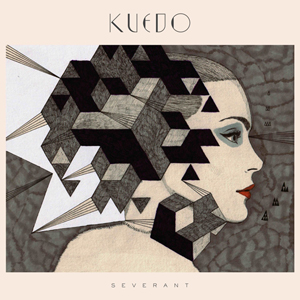Kuedo Severant
Much hullabaloo has been made of the role Berlin-by-way-of-UK producer Jamie Teasdale played as half […]

Much hullabaloo has been made of the role Berlin-by-way-of-UK producer Jamie Teasdale played as half of influential dubstep outfit Vex’d. It’ll be the first thing you’re likely to read in any article (this review included) pertaining to the artist or his solo debut LP as Kuedo, Severant, but that doesn’t make it the best or even an ideal vantage point from which to experience Teasdale’s latest work. The music of Vex’d is patently hard-edged to the point that it could cut through glass, if the glass wasn’t flat out shattered by the sonic intensity in the first place. Those kinds of skull-crushing electronics couldn’t be further from what Kuedo conjures on his new album. Severant is a massive step away from Teasdale’s past output, and one that is confidently sure-footed.
Crystalline synths, warm 808 thumps, and arrays of gelatinous bass tones have effectively replaced the “tower-block-debris” drum sounds (as FACT likes to call them) and distorted, sub-cooking melodic elements that marked the work of Vex’d, giving way to a sonic world that’s much more inviting. Opener “Visioning Shared Tomorrows” sounds something like a track Lex Luger would write for the opening credits of a NeverEnding Story remake, and “Whisper Fate” reps the restrained harmonious haze and drum-machine skitter that colors much of Aphex Twin’s Ambient Works. That kind of dichotomy within Kuedo’s new sound—the swagger of contemporary hip-hop coexisting with the tendencies of decades-old, sci-fi- and fantasy-indebted synth music—is a large part of what makes the mysteries of Severant still so familiar.
Another particularly interesting aspect of this LP is its distinct lack of vocals, sampled or otherwise. Unlike many, might we even say most, of Teasdale’s peers in the bass-music scene, the artist doesn’t rely on reappropriations of the human voice to connect with his audience. There are rare moments during Severant when a singer appears, like on the tempestuous “Scissors” or steadfast album closer “Memory Rain,” but Kuedo utilizes the vocal sounds as punctuation rather than infectious hooks. It’s yet another testament to the distance between where Teasdale was with Vex’d and where he’s going with Kuedo. The producer has undoubtedly severed himself from his past work, and in turn, put himself in a class that few hold claim to.

